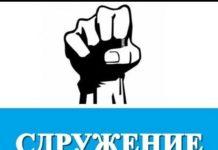
A bill introduced by “Democratic Bulgaria” in the parliament will oblige Facebook and other social networks to identify trolls and delete fake ones during a pre-election situation. The minister of e-government in the previous government, Bozhidar Bojanov, said that if Facebook does not delete the account after the adoption of the provision, the platform will be subject to a fine – a percentage of the annual global turnover. The law is based on the already effective Digital Services Act of the European Union, requiring more transparency and information from Facebook and Twitter.
The bill does not authorize the censorship of statuses and comments on the social network and does not give the state and platforms the right to determine which content is true and which is not, Bojanov added. The proposal includes a number of technical measures to identify trolls spreading misinformation and block real profiles. Bojanov explained:
“The guiding principle is precisely to preserve freedom of speech, and not for someone to drown it in propaganda and suffocate it through reporting. Many people fall victim to reporting by trolls and their content is taken down.
The definition of a troll does not include people sharing unpopular opinions or entering into conflicts with other users, Bojanov pointed out.
“Trolls are fake profiles registered by other people. Most often, several troll profiles are managed by one person or even one company in larger operations. Fake profiles develop over time, content is published on their behalf. Such a coordinated effort most often they are related to a country – Russia, for example, is quite active in such campaigns, but it is not only Russia”, Bojanov also commented.
He also listed a number of indicators that suggest whether a particular profile is trolling or not – fake profile pictures, use of VPNs to bypass restrictions, mismatch between profile names and browser names, automated sharing of content, mass joining of groups immediately after registering the profile, mass adding friends who are not related to each other.
Facebook is not interested in such a bill being adopted in our country, because it would serve as an example to other member states and the European Commission, the MP believes. As a minister in the previous government, he regularly made unanswered inquiries to the platform about whether it was implementing some of the measures outlined to identify trolls.
















